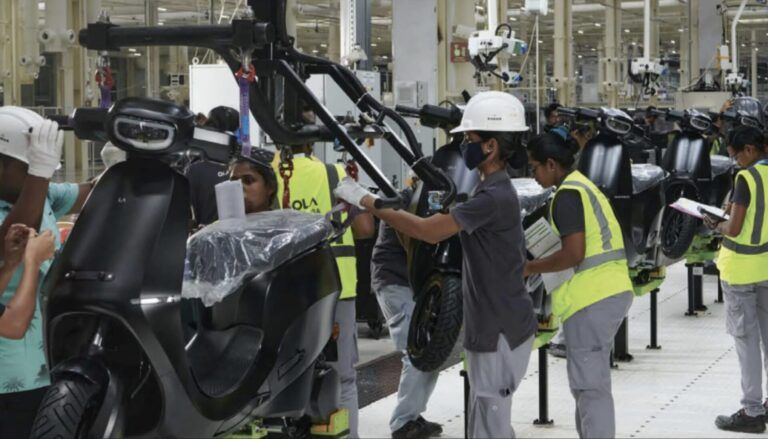A strike occurred last week at the BYD factory in Wuxi, Jiangsu province, China. Online images and short videos in circulation depicted a significant crowd of workers gathered inside the factory premises, with a few individuals seen lying on the ground, covered by blue sheets provided by law enforcement.
BYD is a Chinese multinational company primarily known for manufacturing electric vehicles (EVs) and rechargeable batteries. It’s one of the largest EV manufacturers globally and has several factories in China and other countries.
Why did the Strike Occur?
Reports indicate that employees were unhappy with the introduction of a four-shift system and a five-day, eight-hour work schedule. That’s because it would lead to the loss of overtime pay and a substantial reduction in their earnings.
Previously belonging to the American firm Johnson Controls, the BYD factory in Wuxi underwent acquisition. Last year, BYD purchased Johnson Controls’ factories in Chengdu and Wuxi for 15.8 billion yuan (₹200 crore).
Following the acquisition, Johnson Controls and BYD announced that employee benefits would stay the same and could potentially see minor enhancements in some cases. Additionally, they guaranteed that laid-off workers would receive severance compensation. Nevertheless, reports indicate that BYD did not uphold these assurances, leading to dissatisfaction among the workers.

Overtime Culture in China
The employees’ objection to the removal of overtime compensation may come as a surprise to you. While many countries are moving towards reducing working hours, Chinese workers are expressing a desire for an increase in their work hours. What’s the reason behind it?
Chinese workers are not inherently fond of working overtime; they are often compelled to do so due to various factors. Factories frequently set their basic wages slightly higher than the government’s minimum wage to minimize labor expenses.
So, workers agree to work long hours of overtime to make ends meet. That’s because Chinese labor laws dictate that employers must provide compensation at a rate of 1.5 times the regular wage for overtime and double for weekend overtime.
In recent months, job listings for the BYD factory in Wuxi have advertised a base pay of 2,490 yuan (₹28k). Consistent overtime hours are essential to reach a monthly income of 5,000 to 6,500 yuan (₹57k to ₹74k). In electronics manufacturing plants, a 10-hour workday is common, with certain facilities even mandating 12 to 13-hour shifts.
BYD’s decision to remove overtime compensation decreased the upper limit of employees’ monthly earnings to just over 3,000 yuan(₹35k), a salary viewed as relatively low.

Wrapping Up
BYD has yet to address the situation, and the reasons behind the abrupt shift in overtime policy remain unknown. Companies often use reduced overtime as a tactic to encourage employee resignation. Because when companies opt for layoffs, they have to offer severance pay to affected employees.
Moreover, there is speculation about layoffs within the Chinese automotive sector. Recently, reports emerged regarding worker layoffs at Li Auto, further supporting this case.








